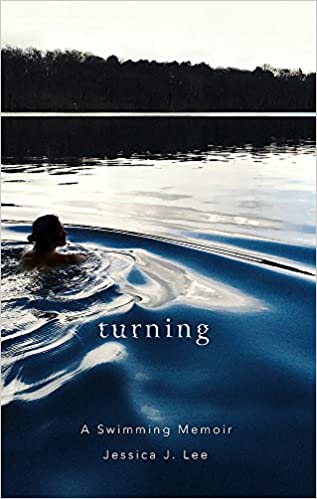
Turning: A Swimming Memoir
Jessica J. Lee, born to a Taiwanese mother and a Welsh father, grew up in Canada, and came to Berlin by way of London. In her book Turning: A Swimming Memoir, Lee relates how swimming in the lakes of Berlin and Brandenburg not only helped her feel at home in this region, but also helped her work through a painful love story and childhood fears. The landscape in which she tries to find herself is not a blank slate. Lee thus combines her very personal story, which is marked by migration and changes of place, with historical fragments about Berlin and Brandenburg, observations on nature, and references to Theodor Fontane’s Rambles Through the March of Brandenburg.
At 28, Lee is alone and heartbroken in Berlin. To make matters worse, she has to complete her doctoral thesis in environmental history, which is a lonely and stressful occupation. After several months of depression, she decides that swimming might cure her, that her feelings of fear, loneliness and pain might be washed away with water. In summer, she plans to swim in 52 lakes in and around Berlin for the next 365 days. As a person who appreciates rules, she sets herself the additional condition that her normal life continues, that friends may accompany her from time to time, but that she will never take a car or a wetsuit with her – not even in winter. Turning describes her swimming experiences and often the journeys by train, on foot and by bike.
Lee’s nature writing presents subjective observations on nature and her own feelings, while the motif of quest recurs throughout. Lee’s quest is the search for herself. However, she makes it clear that not all of her excursions into nature are successful. Swimming doesn’t always have the same redemptive effect on her, changing her mood and perception. Sometimes swimming is just terrible and old fears of the dark depths that open up beneath her return. Lee did not always like swimming. Looking back on her Canadian childhood reveals that for a long time she refused to go into water that was not an artificial pool, although her family, like many in Canada, spent summers in a cottage by the lake. When Lee’s quest causes her to encounter her fears, she shows an attitude that might be described as sensitivity or gentleness towards oneself. She seems to want to convey to herself and her readers that sometimes things just don’t go well; but next time, swimming just might be the best moment of the week again.
In this literary diary, Lee artfully executes the balancing act of combining many different strands and focusing both on her own perceptions, and those of others. She invites us to reflect on the complexity of identities; on what holds friendships, partnerships and families together or what drives them apart; and on the beautiful, inviting landscape around Berlin, which simultaneously speaks of the Nazi era, a divided Germany, and current right-wing extremism.
The book expresses a longing, a kind of nostalgic homesickness, which, however, is not directly bound to a single place, but can be found in small parts here and there. According to Lee, this intangible feeling can be found in the familiarity and intimate experience of the surrounding landscape. Turning is a book for everyone who likes to swim, appreciates careful reflections on human interiority, or wants to learn about Berlin. Lee even manages to re-sensitize long-term Berliners with her appreciative and gentle perspective on the beauty of the region and its historical ghosts.
Order the book here and support us! The work behind poco.lit. is done by us – Anna und Lucy. If you’d like to order this book and want to support us at the same time, you can do so from here and we will get a small commission – but the price you pay will be unaffected.

